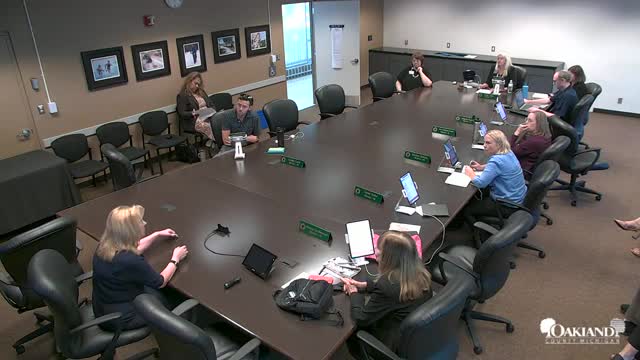Youth Assistance Program Faces Crisis Over Caseworker Shortage
September 10, 2024 | Oakland County, Michigan
This article was created by AI summarizing key points discussed. AI makes mistakes, so for full details and context, please refer to the video of the full meeting. Please report any errors so we can fix them. Report an error »

In a recent government meeting, officials discussed the pressing need for additional caseworkers in the youth assistance program, highlighting the challenges posed by high caseloads. Currently, caseworkers are managing an average of 65 cases, significantly above the recommended standard of 40 for diversion cases and 20 for intensive probation cases. The discussion emphasized that adequate funding is crucial for hiring more caseworkers, especially as the program is now eligible for 75% reimbursement from the state.
Commissioner Erickson Gault raised concerns about whether funding alone would resolve staffing issues, to which officials responded that recruitment has not been a significant barrier. The focus remains on ensuring that funding is effectively reinvested into the program to maintain manageable caseloads, which are essential for providing adequate support to at-risk youth.
The meeting also touched on the importance of community-based prevention efforts, with officials noting that many referrals come from law enforcement aiming to divert youth from entering the formal court system. The proactive approach is seen as a cost-effective strategy to prevent future expenses related to juvenile delinquency.
In addition to youth assistance, the meeting addressed several items from the sheriff's office, including funding for a public safety academy, mental health support for inmates, and the acceptance of therapy canines. Notably, the sheriff's office is set to receive $308,500 for a continuing professional education pilot program, which mandates additional training for officers.
Concerns were raised regarding the financial implications of maintaining therapy canines, with one commissioner questioning the long-term costs associated with their care. The discussion highlighted the need for a clearer gift policy to manage such donations effectively.
Overall, the meeting underscored the critical need for increased funding and resources in both youth assistance and law enforcement, aiming to enhance community safety and support vulnerable populations.
Commissioner Erickson Gault raised concerns about whether funding alone would resolve staffing issues, to which officials responded that recruitment has not been a significant barrier. The focus remains on ensuring that funding is effectively reinvested into the program to maintain manageable caseloads, which are essential for providing adequate support to at-risk youth.
The meeting also touched on the importance of community-based prevention efforts, with officials noting that many referrals come from law enforcement aiming to divert youth from entering the formal court system. The proactive approach is seen as a cost-effective strategy to prevent future expenses related to juvenile delinquency.
In addition to youth assistance, the meeting addressed several items from the sheriff's office, including funding for a public safety academy, mental health support for inmates, and the acceptance of therapy canines. Notably, the sheriff's office is set to receive $308,500 for a continuing professional education pilot program, which mandates additional training for officers.
Concerns were raised regarding the financial implications of maintaining therapy canines, with one commissioner questioning the long-term costs associated with their care. The discussion highlighted the need for a clearer gift policy to manage such donations effectively.
Overall, the meeting underscored the critical need for increased funding and resources in both youth assistance and law enforcement, aiming to enhance community safety and support vulnerable populations.
View full meeting
This article is based on a recent meeting—watch the full video and explore the complete transcript for deeper insights into the discussion.
View full meeting
